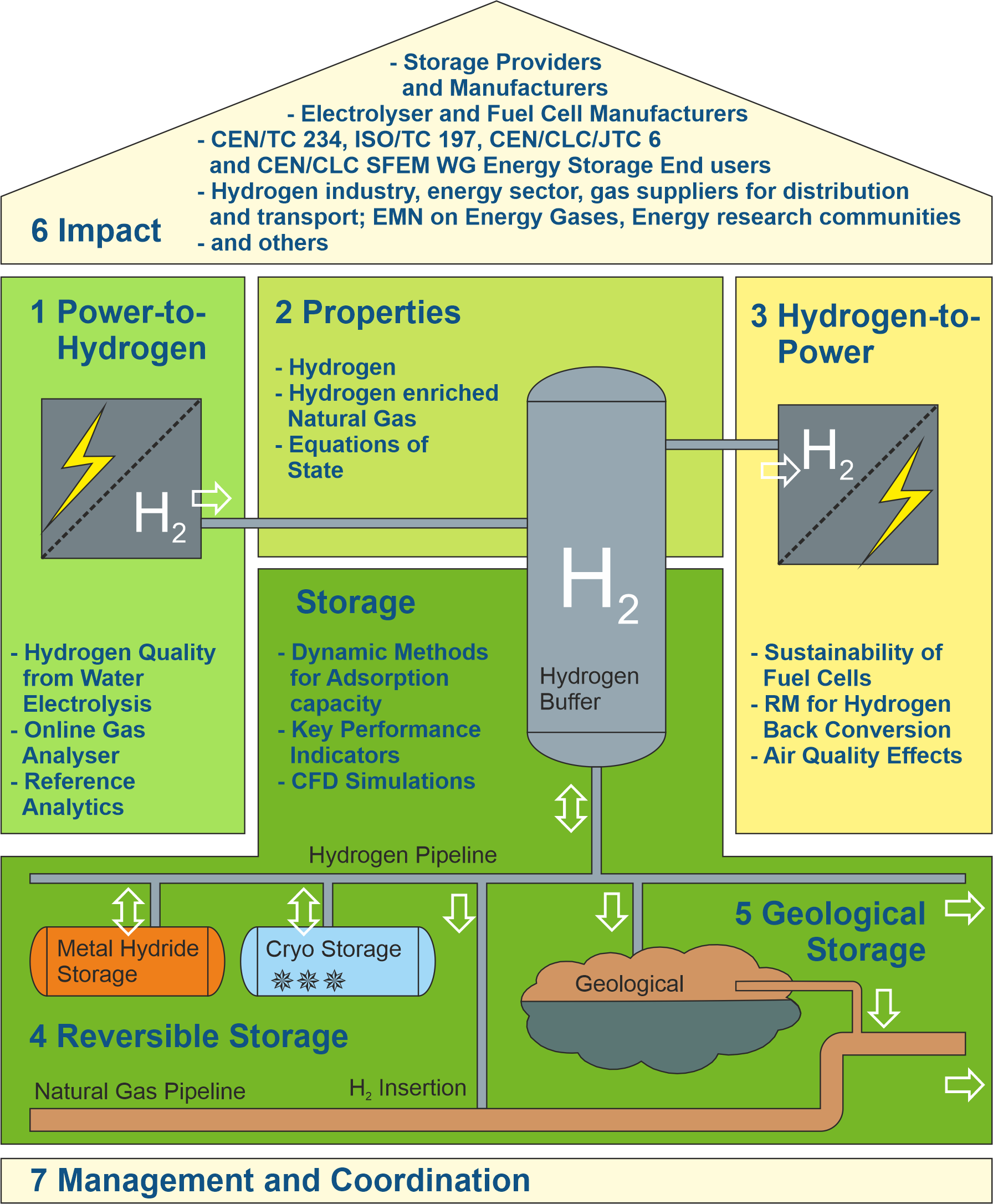About the Project
Large-scale energy storage is required to supply energy at peak times when renewable sources fluctuate. A possible solution for energy storage is large-scale use of hydrogen. Advanced storage solutions for hydrogen, such as Power-to-Hydrogen as well as Power-to-Gas and Gas-to-Power, are a prerequisite to achieve the ambitious new EU energy target of a renewable energy share of 32 % by 2030.
In order to target the newly released European Renewable Energy Directive 2018/2001, metrological traceability in the energy infrastructure for hydrogen storage is crucial. Thus, improved knowledge of chemical and physical properties of hydrogen as well as traceable measurements and validated techniques are imperative.

To address this, this project will assess the quality of hydrogen produced and improve the reference equations of state used for modelling hydrogen injection. In addition, the project will investigate the sustainability and reliability of fuel cells (FC), whose performance is affected by impurities in hydrogen and develop a harmonized method for hydrogen storage. Finally, the project will deal with metrological and thermodynamic issues in the large-scale storage of hydrogen in underground gas storages (UGS) and in the conversion of existing UGS from natural gas to hydrogen.
Renewable energy sources fluctuate significantly, and chemical storage of energy with hydrogen is the most promising solution to avoid disruptive effects in energy supply. Depending on the amount, the availability and the required purity, three different methods of storage are envisaged at present for hydrogen:
- insertion into the natural gas grid,
- underground storage in geological cavities, and
- medium-sized, safe, reversible storage in solids by hydrides, or adsorption in porous media.
Reliable standards, reference methods and qualifying materials are required for these three storage types. Therefore, specific thermodynamic properties for hydrogen–natural gas mixtures are assessed for providing accurate data to the energy meters in Power-to-Gas technologies.
14 European consortium partners will tackle long-term economic, social and environmental impacts such as increasing confidence for regulators, industry and investors in large scale hydrogen storage, supporting maximum integration of intermittent renewable energy sources, like solar or wind, enabling seasonal energy storage for heating, transport and electricity and cultivating metrology to support smart electrical grids through rapid hydrogen transfer to/from storage.


